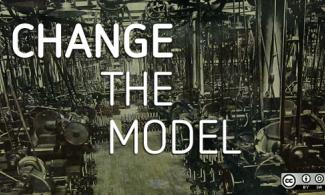
A New Economy Vision for an Alternative Political-Economic System
Dramatically redistributing ownership and restructuring the institutions of wealth administration to align resource allocation decisions with the interests of people, communities, and nature is essential to a healthy and prosperous human future. Sorting out how to accomplish a transition from the system we have to the system we need is a defining — and so far largely unaddressed — question of our time.
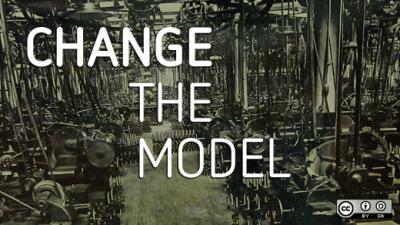 The culture and regimes of the current political-economic-social system are human creations that go against our true human nature and Earth’s regenerative capacity. Those whom the current system exploits and excludes have the right and the means to organize and replace them with the culture and regimes of an alternative social-political-economic system – a New Economy. The New Economy system will at a minimum support these four core components:
The culture and regimes of the current political-economic-social system are human creations that go against our true human nature and Earth’s regenerative capacity. Those whom the current system exploits and excludes have the right and the means to organize and replace them with the culture and regimes of an alternative social-political-economic system – a New Economy. The New Economy system will at a minimum support these four core components:
Earth Balance between aggregate consumption and the generative capacity of Earth’s biosphere.
Livelihood Opportunities for all based on the just and equitable sharing of real wealth.
Financial Integrity and stability in service to real investment in community wealth building.
Living Democracy to secure economic and political accountability to people, community and nature.
In order to avoid the pitfalls and injustices – environmental destruction, social breakdown, financial failure, and political corruption – of the present system and other failed systems, a strong and dynamic New Economy movement must be forged. It should not seek marginal policy reform to limit the suffering and damage caused by failures of the current system. Instead, the goal should be to usher in a new system that by its natural dynamics of its culture and structure works in co-productive balance with Earth’s natural systems, assures every person the opportunity to live a full and meaningful life, and gives each person a meaningful voice in the decisions that affect their lives.
This will require a foundational paradigmatic shift in our most fundamental beliefs about the purpose of the economy, our human nature, and our human relationship to one another and all living beings. This shift begins with recognition that by the very way life manages and shares energy, life survives and thrives only as a living community of organisms.
The transition to a life-serving New Economy is a fundamental step to our species maturity as we assume adult responsibility for the care of the living systems that sustain us, learn to share Earth’s bounty as members of a healthy thriving Earth Community of life, and make deep-rooted democracy a living reality.
Those who engage in this work must recognize the extent to which the changes the New Economy movement calls for go well beyond what we normally think of as economic issues. They go to the heart of our most basic beliefs and values and every aspect of how we organize to live together with one another and nature.
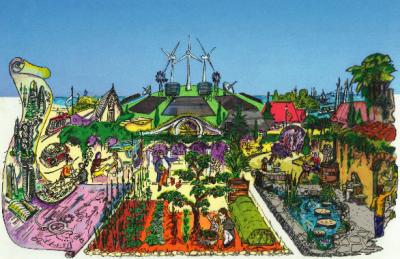 The purpose of the New Economy is to serve life. The two most critical system design variables are values and power. The current system’s institutions concentrate power in impersonal financial markets that value only money and are devoid of conscience, ethical sensibility, and loyalty to place. Alternatively, New Economy institutions will distribute power democratically to people with a conscience and a natural concern for the health and wellbeing of their families, neighbors, communities, species, the natural living systems of the place where they live, and their future generations.
The purpose of the New Economy is to serve life. The two most critical system design variables are values and power. The current system’s institutions concentrate power in impersonal financial markets that value only money and are devoid of conscience, ethical sensibility, and loyalty to place. Alternatively, New Economy institutions will distribute power democratically to people with a conscience and a natural concern for the health and wellbeing of their families, neighbors, communities, species, the natural living systems of the place where they live, and their future generations.
The culture of the New Economy will value life over money and celebrate co-operation, life in community, popular democracy, and businesses that make a positive net contribute to community health and wealth.
The institutions of the current system are deeply entrenched and those who head them are committed to maintaining their power at any cost. There is virtually no prospect that they will transform from within. Our best strategy to move our society towards a co-operative economic future is to displace the values and institutions of the current system with the values and institutions of a New Economy forged into being from the bottom up through popular action.
This transition is already underway as millions of people mobilize to establish and support locally owned appropriately-scaled businesses and family farms that advance regional self-reliance in food, energy, and other basic essentials. People are also moving their money to local banks and credit unions, retrofitting buildings for energy efficiency, and changing land-use policies to favor compact communities, reduce auto dependence, reclaim agricultural and forest lands, and much, much more.
Each of these actions, shifts power away from the institutions of the dominant system and redirects it to the institutions of an emerging generative New Economy. As the new system gains in scale and visibility, it provides a growing range of attractive opportunities for livelihoods, quality of life, and investment.
Organizations that seek a world that is environmentally sustainable, socially just, politically democratic, and economically co-operative are now asking a critical question: does our work merely provide temporary relief for victims of a failed system; OR does it make an incremental contribution to shifting power away from the old system to the new?
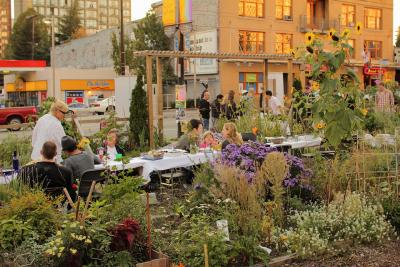 Rather than providing temporary shelter for the homeless, these organizations turn the homeless into homeowners. Rather than establish a new soup kitchen, they create a community garden in which those who are hungry can grow their own food with pride and dignity. Rather than seeking marginal regulatory restraints on destructive practices of predatory Wall Street banks, they campaign to break them up and convert them into community banks cooperatively owned by the people who depend on them for financial services. Rather than create low paying, no benefit, jobs that are best left undone, they create ecologically generative, community based, and worker-owned jobs that provide livelihoods.
Rather than providing temporary shelter for the homeless, these organizations turn the homeless into homeowners. Rather than establish a new soup kitchen, they create a community garden in which those who are hungry can grow their own food with pride and dignity. Rather than seeking marginal regulatory restraints on destructive practices of predatory Wall Street banks, they campaign to break them up and convert them into community banks cooperatively owned by the people who depend on them for financial services. Rather than create low paying, no benefit, jobs that are best left undone, they create ecologically generative, community based, and worker-owned jobs that provide livelihoods.
The strategy to achieve this system transition has seven essential pressure points – though there is need for action on many fronts – we have identified seven critical action clusters focused on seven critical system pressure points that advance systemic change at the deepest level. Each addresses a key source of the current system’s failure. These categories should be a helpful guide to thinking strategically about political-economic-social system change, while recognizing that they are all interconnected.
Framing Stories: Replace the money is wealth economic story with a life is wealth story. All civilizations live by stories that express their shared values and beliefs. If we change the story; we change the future. The legitimacy of the current system’s economic institutions – and their control over us – rests on the foundation of a familiar story: money is wealth.
Performance Indicators: Replace financial metrics with living metrics as the basis for evaluating economic performance.
Finance: Replace the current Wall Street financial system devoted to funding speculation and environmental destruction with a New Economy financial system devoted to funding the needs of people, communities, and nature via a community-based and democratically-accountable system of money, banking, and finance that creates and allocates money as a well-regulated public utilities in response to community needs and opportunities that support community financial institutions, state partnership banks, a national infrastructure bank, and that restructures the Federal Reserve to limit its responsibility to managing the money supply, subject it to federal oversight and public accountability, and require that it directs all newly created funds to a Federal Recovery and Reconstruction Bank.
Ownership: Innovative ownership models that support broad ownership participation, productive investment, a long-term perspective, and deep community roots and accountability that support community land trusts and shared ownership, which can take many forms: conservation easements; working waterfront covenants; wind guilds; resident-owned communities, etc.
Real Markets/Real Democracy: Create real rule-based markets and real democracy by breaking up concentrations of corporate power, barring corporations from competing with living human beings for political power and implementing rules and incentives that support social and environmental cost internalization and fair competition.
Self-Reliant Bio-Regional Economies: Pursue local economic development programs that build diversified, self-reliant, energy efficient, democratically self-organized regional economies comprised of locally owned enterprises accountable to local communities and devoted to serving local needs.
Global Rules By and For People: Restructure global rules and institutions to limit the concentration of corporate power and secure the economic sovereignty of people by assuring that any corporation that operates across national borders is democratically accountable to the communities in which it operates.
*****
The essential transition to a new political-economic system – a New Economy – requires a great deal more than adjustments at the margin of the culture and institutional structures of the established economic system. The work requires a clear vision and strategy that recognizes and addresses the critical difference between treating the symptoms of system failure and transforming and replacing the failed system.
It requires a fundamental rethinking and restructuring of our values and institutions to redefine our relationships with one another and with nature. It requires deep changes not only in our economic institutions, but also in institutions of democracy, law, and education. The transition to a New Economy presents perhaps the most important and difficult challenges the human species has yet faced.
Citations
Noel Ortega (2014). Serving Life: A New Economy Vision for an Alternative Political-Economic System. Grassroots Economic Organizing (GEO). https://geo.coop/story/serving-life

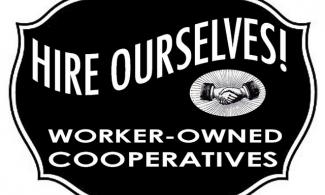
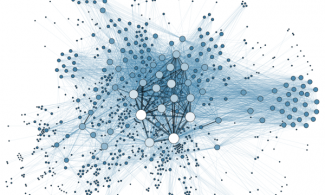
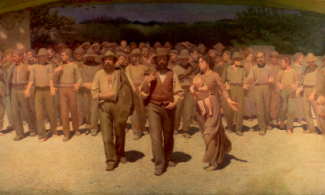
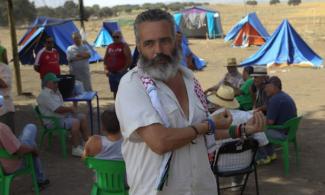
Add new comment